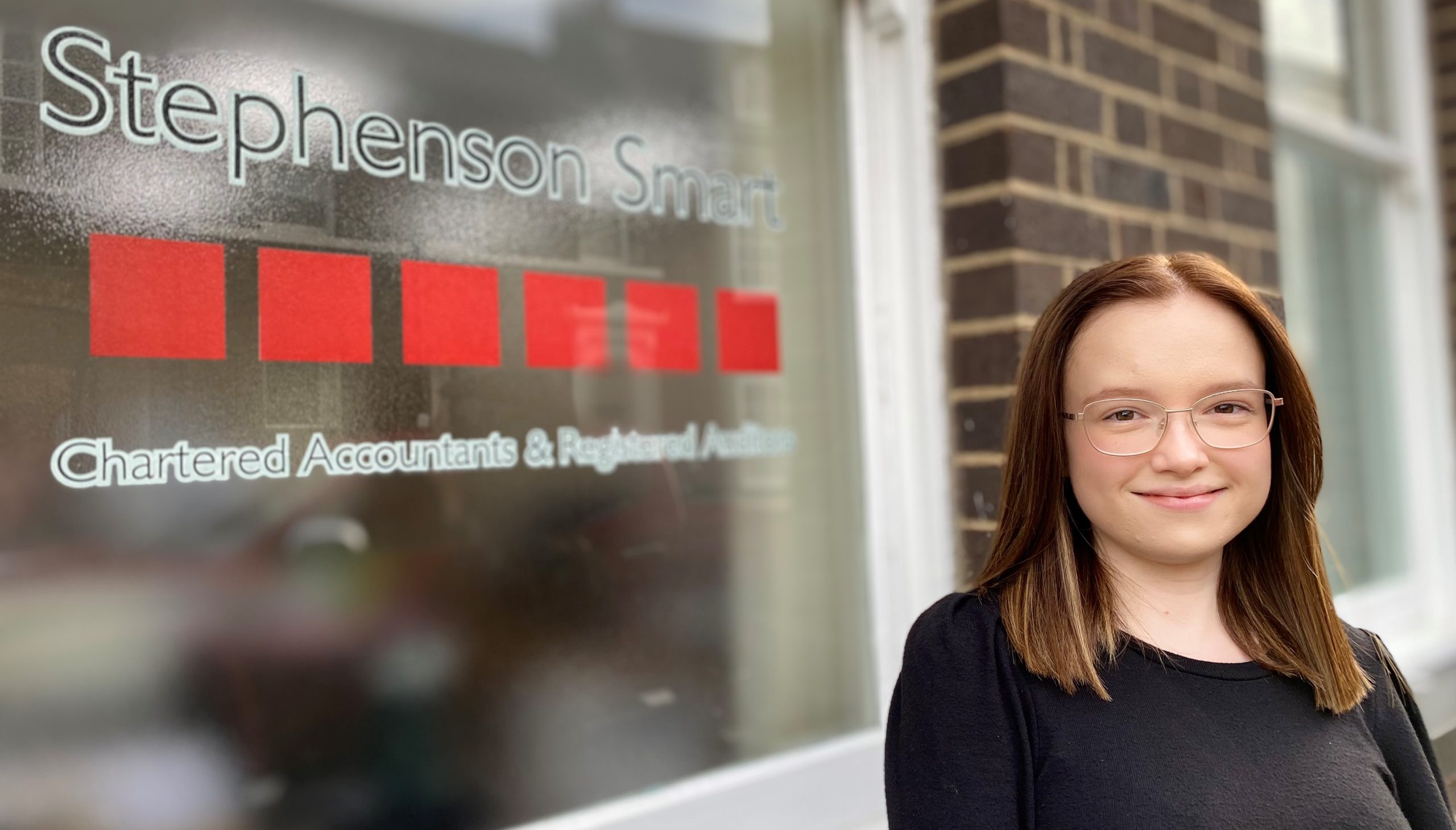5th April, 2022, Melanie Harriss
During the Covid pandemic many people reconsidered their working life, and 2020 saw a record number of new business start up companies . One of these is Cambridgeshire Hair and Beauty in March.
Lauren Slipper, hair and beauty specialist and Sean Brown, family friend and entrepreneur, have transformed a property on Gaul Road, March, into Cambridgeshire Hair and Beauty, helping to realise a dream for former Centre Parcs Spa Manager, Lauren.
Since it opened in July 2020, the business has soared, with hairdresser Abbie Evans joining the team to meet the demand. Lauren is already offering a host of new services, with hopes to set up a training school in the future.
Lauren said the challenges faced didn’t put her off investing in her own business:
“I’ve always wanted to have my own salon and when Sean approached me with the opportunity of being his business partner, I just knew it was the right time.”
Sean added: “It was obviously a difficult time to open but we did it without fear and since then we have just expanded rapidly, it’s been absolutely bonkers.”
The pair renovated the building next door to another of Sean’s businesses, Cambridgeshire Medical Aesthetics, with space for a hairdressing salon, reception area and beauty room.
Sean said support from Chris Goad, partner at Stephenson Smart, had been vital with opening a business during the pandemic.
“Chris has been brilliant. I can literally send him a text with a quick question, and he is always so helpful.
“With each business start up I have worked on Chris has guided me through the process and helped me with the business model. He’s also been so supportive throughout Covid and the different claims available to me.
“I haven’t had the need to worry about anything because I know Chris is always at the end of the phone with an answer.”
Starting up a new business is both an exciting and a challenging task, which carries with it an element of risk. Key decisions need to be made, and there are many factors to consider.
Stephenson Smart are specialist business start up advisors. We can guide you through the decision-making processes, help you make the appropriate registrations, assist with cash flow forecasts and offer regular updates to enable you to monitor the performance of your business. Please get in touch if we can support you on your new business start up journey.
Related pages: Business Start Up Advice

13th January, 2022, Melanie Harriss
In response to restrictions imposed, the government have announced Omicron Business Support available to firms in the UK.
Omicron Business Support: Local Authority Grants
The first in a package of Omicron business support is for firms in the hospitality, leisure and accommodation sectors, many of which have seen a decline in footfall and increased cancellations due to the Omicron variant. These businesses are able to apply for one-off grants of up to £6,000 per premises depending on rateable value, via their local authority.
Further funds are also being given to local councils to support other businesses impacted by Omicron, such as those that supply the hospitality and leisure sectors as well as personal care services, these will be administered as Additional Restrictions Grants by local authorities.
Businesses eligible for Local Authority Grants are those that offer in-person services, where the main service and activity takes place in a fixed rate-paying premises, in the hospitality, leisure and accommodation sectors.
This includes businesses whose main function is providing a venue for the consumption and sale of food and drink, those that provide facilities linked to recreation and entertainment, as well as businesses whose main premise is used for holiday accommodation.
In the areas that our offices cover, these can be applied for with North Norfolk District Council, Fenland District Council, Borough Council of King’s Lynn and West Norfolk and Great Yarmouth Borough Council.
Omicron Business Support: Statutory Sick Pay Rebate Scheme
Further Omicron business support comes with the reintroduction of the Statutory Sick Pay Rebate Scheme for coronavirus-related absences for small and medium-sized employers.
Businesses could be eligible for support if they employed fewer than 250 employees on 30 November 2021, and have paid Statutory Sick Pay (SSP) to employees for coronavirus-related sickness absences.
Up to two weeks SSP can be claimed, if employees have been paid at the relevant standard weekly rate of £96.35, for any eligible periods of coronavirus-related sickness from 21 December 2021. This is a new claims period.
Businesses could claim to cover the costs for up to two weeks of SSP for an employee who takes time off because of coronavirus, regardless of whether they have claimed for that employee under the previous scheme.
Omicron Business Support: Culture Recovery Fund
Additional Omicron business support is a further £30 million of funding being made available through the Culture Recovery Fund. These grants support cultural organisations that have been affected by the Covid-19 crisis to stay afloat, providing them with support to ensure that they can survive and stay open.
The funding is accessed via Arts Council England.
Omicron Business Support: Time to Pay
HMRC still has its Time to Pay arrangement in place. This can be accessed if you are facing difficulty in making a tax payment; you can make an arrangement to pay what you owe in affordable instalments.
In order to access this support you need to contact HMRC, as arrangements are made on a case-by-case basis.
Related articles: Bounce Back Loan Repayment

6th January, 2022, Melanie Harriss
If your business is struggling to recruit, offering an apprenticeship or traineeship scheme might be the answer and could make someone’s New Year!
Part of the government’s Plan for Jobs to help the UK economy recover from the covid pandemic includes support for employers to take on trainees.
There are different schemes available:
Kickstart Scheme
The Kickstart Scheme, which has recently been extended to March 2022, aims to create 6-month job placements for young people who are currently on Universal Credit and at risk of long-term unemployment. The job placements are aimed at supporting the participants to develop the skills and experience they need to find permanent work after completing the scheme.
For each Kickstart job, the government will cover the cost of 25 hours a week at the relevant National Minimum Wage in addition to pension and National Insurance contributions for a period of 6 month. Employers will also receive £1,500 per placement to cover set-up costs and provide wraparound support for the young person.
Traineeship scheme
Traineeships are skills development programme for people of all ages that includes a work experience placement and gets people ready for employment or an apprenticeship.
Traineeships can last from 6 weeks up to 1 year and may include individual support in various methods of securing employment.
Employers who provide opportunities through a registered traineeship can use the scheme to recruit new talent into the business or help develop the skills of exiting employees. A business can also benefit from an employer incentive of £1,000 when a work experience placement of over 70 hours has been completed. This incentive can be claimed for up to 10 learners per region and employers can decide how to use the money.
Apprenticeship scheme
Apprenticeships employ people to do a real job while studying for a formal qualification – usually for one day a week either at a college or training centre. By the end of an apprenticeship, most people have gained the skills and knowledge needed to succeed in their chosen career.
There are two ways of accessing government funding to support an apprenticeship.
If an organisation’s wage bill is £3 million per annum or more, the organisation will pay a levy of 0.5% of the wage bill. Levy paying employers get a £15,000 allowance per annum to offset against the amount they have to pay.
If an organisation’s wage bill is under £3 million, you don’t have to pay the levy. Instead, the employer agrees a payment schedule with a registered training provider and pays 5% towards the cost of the apprenticeship training to them directly. The government will pay the remaining 95%.
At Stephenson Smart we believe in nurturing talent within our organisation and have an active apprenticeship scheme. We currently have 24 trainees working across our six offices.
One of our youngest trainees is Bethany Little, who is based at our King’s Lynn office.
Bethany came to Stephenson Smart straight from high school to embark on her accountancy career.
“I came for a week’s work experience while I was at school and really enjoyed it. I am now studying for a joint ACA/CTA qualification which will mean that I will not only be a chartered accountant but also a chartered tax advisor at the end of it.”
One of our newest trainees is Deborah Robinson, who is based at our March office.
Deborah, who grew up in Stevenage, moved over to train in accounting after a successful career in the equestrian industry running a riding school. Deborah said:
“I came to a bit of a crossroads and thought it would be good to try something else and after spending so long working outside an office with a roof over my head seemed quite appealing! I’m really enjoying it and everyone has been lovely and supportive, so I’m looking forward to learning and progressing.”
After successfully completing her AAT qualification, Deborah has now started the next stage of her study, ACA qualifications through the apprenticeship route.
Chris Goad, partner at Stephenson Smart’s March and Wisbech offices, commented:
“We have always had a strong apprenticeship scheme at Stephenson Smart and find great rewards in hiring new talent and nurturing them to become accounting professionals.”
“If your business, like many others, is struggling to recruit, offering a traineeship or apprenticeship scheme might be the answer.”

25th February, 2019, Melanie Harriss
If you are looking to start your own business in Norfolk or Cambridgeshire, let Stephenson Smart give you a hand.
Starting your own business can be challenging and daunting and often the level of support is based on limited knowledge of what is needed and affordability.
We can take away that burden. We are Chartered Accountants and Business Advisors, specialising in business start up advice. We have many clients whose unique, small businesses have grown significantly, and we have supported them through it. With our tailored and personal approach, advice and support is provided in a cost-effective way.
A significant task for a new business owner is ensuring that the business complies with the extensive tax, legislation and insurance requirements that are imposed by various authorities. To avoid problems, penalties and – in some cases – legal action, it is important to understand your obligations.
Small business start ups are an extremely important part of the economy. At Stephenson Smart we recognise both this and the role we can play in nurturing ambitious enterprises. Stephenson Smart’s dedicated business start up advice team provide accounting, tax and business start up advice.
At Stephenson Smart, we can offer business start up advice and support you by:
- Keeping your books in order
- Minimising your tax payments
- Providing practical advice on starting and running a small business
- A pre-agreed competitive fixed fee
- Offering a personal approach
We have offices in King’s Lynn, Great Yarmouth, Acle, Fakenham, Wisbech, March and Downham Market and qualified, professional teams on hand to offer you great business start up advice.

25th February, 2019, Melanie Harriss
Corporation business tax planning is vital. Here at Stephenson Smart we have built up an excellent reputation for progressive tax planning for businesses throughout the whole of the UK. Individuals operating in partnership, sole traders, UK companies and permanent establishments of foreign companies situated in the UK are all liable to pay tax in the UK on their business profits. The regime under which tax is collected differs depending upon the structure through which the business operates.
Corporation Business Tax Planning
A limited company will need to file a Self-Assessment tax return form called a CT600, while partnership will need to file a Self-Assessment partnership return called a SA800. Sole traders and individual partners of partnerships will file Self-Assessment tax returns called SA100.
The responsibility of the correct calculation of business profits contained within each of the Self-Assessment tax returns filed in the UK rests solely with the taxpayer.
Stephenson Smart are able to assist in formulating and submitting calculations of business profits compliant with the latest changes in legislation, making the most of deductions and allowances available to the business. In most cases we can reduce the amount of tax paid and maximise the wealth of the company and/or individuals.
Corporation Tax
Corporation tax returns need to be filed online in iXBRL format. Filing returns late will result in a penalty and interest on late paid corporation tax will accrue. We are here to ensure that all returns are submitted on time, in the correct format and that all deadlines are met.
Capital Allowances
Business expenditure of a capital nature is not always tax deductible, but may qualify for capital allowances. There is a wide variety of capital allowances available for capital expenditure depending upon the nature of the capital asset purchased. We will maximise the amount of capital allowances claimed, and the subsequent deduction from taxable profits will reduce your tax liability. Working together with your business we will keep you up to date with tax legislation affecting capital allowances available and ensure that your tax liability is minimised.
We can offer advice specific to you and your needs on an individual basis in relation, but not limited to, the following events:
- Advice on Corporation business tax payments and their timing, whether in instalments or single transactions.
- Calculation and submission of company tax returns in required iXBRL format.
- Maximisation of research and development tax credits and administering the repayment of tax losses.
- Maximising capital allowances, in some cases obtaining 100% allowances through utilisation of the Annual Investment allowance and Enhanced Capital allowances.
- Maximising relief for expenditure on intangible assets and goodwill.
- Reconstructions of businesses and groups, including mergers and acquisitions both within the UK and internationally.
- Effective loss relief planning including group relief to maximise the potential of your business.
- Advice relating to company strategy such as directors remuneration planning and dividend policy.
Research and Development Tax Relief
Research and Development (R&D) reliefs support companies that work on innovative projects seeking to make an advancement in science and technology and can be claimed for costs specifically relating to those projects including; staff, software and consumables.
There are two different types of Research and Development reliefs, depending on the size of the company.
Small and Medium Sized Enterprises (SMEs) can claim an extra 130% Corporation Tax deduction for their qualifying costs from their taxable profit, as well as the normal 100% deduction, to make a total 230% deduction. This can then translate into a tax credit if the company is loss making, worth up to 14.5% of the surrenderable loss.
Large companies can claim a Research and Development Expenditure Credit (RDEC) against their Corporation Tax liability for working on R&D projects, worth 13% of the qualifying R&D expenditure.
Get in touch to see how Stephenson Smart can help your business.
Page 3 of 5





